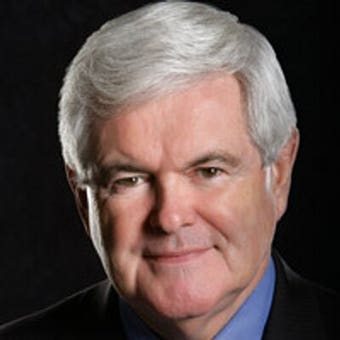Fox News Flash top headlines for April 16
Fox News Flash top headlines are here. Check out what's clicking on Foxnews.com.
The left claims to care about income inequality, but time and time again, its members reject solutions that allow more people to accumulate assets and savings. That’s because the left wants to end income inequality by leveling everyone down so everyone will be equally miserable. The American way, however, is to help everyone move up in income and have a better life.
One example of a dramatic effort to empower the poor and help them enrich themselves was developed by then-Secretary of Housing and Urban Development Jack Kemp, under President George H. W. Bush.
As a congressman from Buffalo, Kemp helped develop supply-side economics and authored the Kemp-Roth three-year tax cut, which became the basis for President Ronald Reagan’s tax cut plan.
Both as a congressman and Secretary of HUD, Kemp was one of the most innovative leaders in finding ways to bring the benefits of capital and ownership to the poor.

Poverty doesn't have to stay a way of life. Republicans have advocated for ways to accumulate wealth. (iStock)
He and civil rights activist Bob Woodson developed a program to allow people in public housing to eventually own the units in which they lived in exchange for helping to maintain the buildings.
This bold idea outraged left-wing Democrats. Massachusetts Congressman Barney Frank, one of the most liberal members of the House, objected to the program, pointing out that it would enable poor New York City residents to acquire properties worth $1 million in the New York market.
Yes, the fact that the program could help poor people accumulate wealth was his objection. The left is willing to talk about helping the poor so long as they remain poor – and are kept dependent on the government.
Another example of a bold reform that would give lower income Americans the opportunity to accumulate more wealth is strengthening Social Security with personal savings accounts.
One of the major obstacles to fixing the wealth gap in America is the fact that 4-in-10 Americans have no investments in the stock market.
Individual accounts to strengthen Social Security would enable every American to have a 401(k) and enjoy larger monthly payments when they retire. Unlike the current Social Security model, this would enable seniors to leave the balance of their accounts to their heirs.
This opportunity is particularly important to Americans of lower incomes because the lack of generational wealth transfer is a major driver of persistent inequality.
Of course, the left objects to this enhancement of Social Security – not because it would be bad for the poor and minorities, but because it would make these groups more capitalist and less dependent on government.
In recent years, we’ve seen this pattern repeat itself in the left’s assault on retail trading platforms that allow customers to access the stock market via apps on their phones.
Because they don’t charge commissions for trades, retail investment apps lower the barrier to entry by making small dollar investing cost-effective. Instead of making money on commissions, these trading platforms often rely on small rebates from market-making firms that compete to execute the trades – a process called payment for order flow (PFOF).
Today, commission-free online investing and trading is the norm. Since the introduction of zero-commission trades in 2013, a slew of commission-free online investing platforms has arisen in the marketplace. As a result, retail investment volume for equities grew to 25% of total investing trading volume in 2021 from 10-15% in the 2010s (BNY Mellon November 2021). This increase in retail investment has brought with it an increase in the number of minorities and women joining the investor class.
A report by the Financial Industry Regulatory Authority (FINRA) Foundation showed that since 2015, minorities have entered the investing market at a faster pace than whites. And, these minority investors tend to be younger than the white investors.
Another report from Fidelity showed that 67% of women are now investing outside of retirement, up from 44% in 2018. Again, the largest increase comes from younger women. The study also showed that women tend to outperform men as investors.
But much like Congressman Frank, who objected to the idea that the poor might get a chance to own a $1 million home, the left objects to the idea of giving more people the opportunity to accumulate wealth through investing.
President Joe Biden’s U.S. Securities and Exchange Commissioner Gary Gensler, backed by liberal Democrat politicians such as Massachusetts Senator Elizabeth Warren and New York Congresswoman Alexandria Ocasio-Cortez, falsely claim that without commissions paid by traders, the trading apps serve the interests of market makers and hedge funds, not the customers. Others on the left claim that options trading is too risky to allow normal Americans easy access.
CLICK HERE FOR MORE FOX NEWS OPINION
Some trading platforms, such as Public.com, have attempted to appease the left, announcing in 2021 that they were eliminating PFOF and would instead rely solely on tips to make money. Public also prohibited its customers from trading even basic options.
Individual accounts to strengthen Social Security would enable every American to have a 401(k) and enjoy larger monthly payments when they retire. Unlike the current Social Security model, this would enable seniors to leave the balance of their accounts to their heirs.
However, earlier this year, the company did a 180, announcing the return of PFOF as part of the introduction of options trading to their platform. Like many companies that experienced "go woke, go broke" effects, Public discovered it could either give its customers what they want or the left what it wants. Public appears to have chosen its bottom line.
Politicians should learn the same lesson. Americans are struggling in the Biden economy and want financial independence. This means providing them with more opportunities to accumulate wealth, not taking those opportunities away by banning the business models that enable more people to invest.
CLICK HERE TO GET THE FOX NEWS APP
The deterioration of our cities and explosion of housing costs under Biden also mean it is time to think more creatively about our welfare and anti-poverty programs. They should support the benefits of savings, investment, and wealth accumulation.
Our goal should be to help people leave poverty, not keep them stuck there.














































